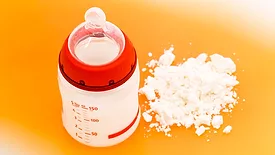Home » Keywords: » infant formula
Items Tagged with 'infant formula'
ARTICLES
EVENTS
Sponsored Webinar
3/3/26 to 3/3/27
Contact: Vania Halabou
FDA/USDA Regulatory Updates: Food Safety Work Plans for 2026
Never miss the latest news and trends driving the food safety industry
Newsletters | Website | eMagazine
JOIN TODAY!Copyright ©2026. All Rights Reserved BNP Media.
Design, CMS, Hosting & Web Development :: ePublishing












